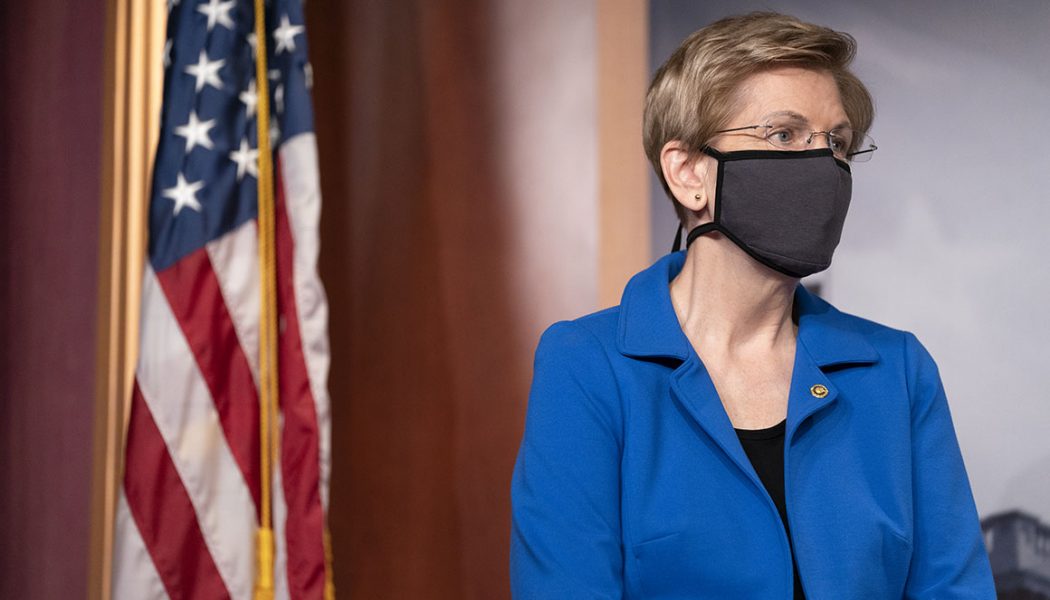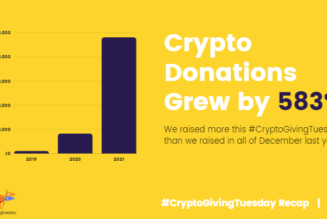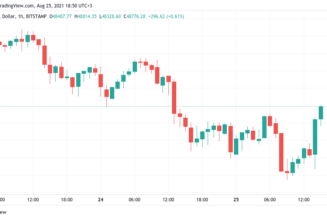BlackRock CEO Larry Fink, who has been hailed by some as a corporate leader in fighting climate change, is putting his weight behind a call for companies to abide by a voluntary global standard instead and is warning against the potential shortfalls of government intervention. And Republican lawmakers are emerging as allies to businesses resistant to the looming transparency rules.
“This is about solving a societal problem that does not align simply with the SEC’s mission,” said Rep. Patrick McHenry, the top Republican on the House Financial Services Committee. “I’d like the Securities and Exchange Commission to stick to what they do and then for us in the elected class to make these large-scale societal decisions.”
At the heart of the clash is a broader argument about how much control the government should have over business, a debate that will get more heated as President Joe Biden’s administration moves to impose stricter regulations on the economy after four years of rollbacks by former President Donald Trump.
The reluctance to embrace the government’s growing role in climate policy is echoed by business groups in Washington, D.C., that are calling for flexible disclosure requirements. The campaign by Democrats is expected to trigger a lobbying blitz as companies try to shape regulations that could require them to publicly quantify their carbon footprints, potential financial losses from climate-related risks and their plans for making their operations more environmentally sustainable.
An increasing number of corporations are responding to the pressure by releasing more climate data voluntarily, though industry representatives say companies are split on the issue.
“There are some who care, but they don’t want to be told what to do,” said Stephen Brown, a veteran energy industry consultant who ran the federal affairs office of oil refiner Tesoro for 12 years. “There are others who would like to be told how to do it.”
The U.S. Chamber of Commerce and the American Petroleum Institute, two of the biggest business associations, are warning against a one-size-fits-all approach to the rules, which could expose companies to legal trouble if they don’t accurately report information. The API said it supports greater transparency but that rules “must be workable for different industries, support access to capital for all sectors and allow for companies’ reporting to demonstrate the multiple pathways toward managing climate opportunities and risks.”
The Chamber argues that the regulations should allow for companies and their investors to determine the most relevant information to release, rather than imposing “rigid” standards. The Chamber is among the groups that in recent years have sued the SEC to block other corporate transparency rules. Climate disclosure advocates see litigation as a major risk for the agency.
“There are people who are going to be reluctant to have any disclosure obligations imposed on public companies sort of broadly,” said former SEC Chair Mary Schapiro, who is now a key player in crafting international climate reporting standards and supports mandatory disclosure. “There are people who will believe it’s not really material information — that material means big and now and that climate in many ways for some sectors may not manifest itself in the very short term.”
Republican officials are signaling that they will fight the effort, giving companies a powerful set of friends.
Republican SEC Commissioner Hester Peirce told POLITICO she was skeptical that climate-related requirements could meet the standard of “material” information for investors, meaning that it would be important enough to affect a company’s stock price.
“Imposing a costly and prescriptive reporting regime wouldn’t give investors any new meaningful information, but would discourage firms from going public, reduce access to capital and slow economic growth, which means fewer jobs and opportunities for retail investors,” said Sen. Pat Toomey of Pennsylvania, who will be the top Republican on the Senate Banking Committee.
BlackRock’s Fink argues that many publicly traded companies — those accustomed to sharing information widely with investors — are on track to manage their climate risk amid growing market pressure. He says the government should focus on privately held firms that are taking on more carbon-intensive businesses but don’t divulge as many details of their operations. Companies that start disclosing information should get temporary legal protections to shield them if they misreport data, Fink says.
“We’re going to see a vast change in the public company arena worldwide,” he said at a Brookings Institution event Tuesday. “They are going to move forward. We’re not going to need really governmental change or regulatory change.”
But advocates say forcing major companies to follow a standard method for revealing their contributions to climate change is a critical step to reorienting the global economy on a path toward reducing greenhouse gas emissions. A July Government Accountability Office report found inconsistencies in how companies report information on environmental and social issues that are an increasing focus for investors.
“There is, without question, significant and systemic risk to the financial system that is created by climate change,” said Rep. Sean Casten (D-Ill.), who wrote legislation with Sen. Elizabeth Warren (D-Mass.) that would require the SEC to develop climate disclosure rules. “Yet if you are an investor and you want to understand how much of that risk you’re exposed to, you don’t have any unambiguous metric that says this is what your exposure is that’s done in a consistent way.”
The U.S. is entering the debate after other countries, including the U.K., have moved to make climate risk disclosures mandatory for companies. The effort has been aided by groups such as the Task Force on Climate-Related Financial Disclosures, a G20-led organization chaired by Michael Bloomberg that has been developing a framework for companies that want to voluntarily report the information. Its work and that of the Sustainability Accounting Standards Board could be the basis for what the SEC makes mandatory for big companies. BlackRock’s Fink is among the leaders supporting the two disclosure groups. He is calling for a single international standard to avoid differing requirements across the globe.
The official who’s expected to lead the way for Democrats is Gary Gensler, Biden’s nominee to chair the SEC. Gensler’s selection is encouraging to climate disclosure advocates because he took on the banks when he was the lead regulator writing financial trading rules after the 2008 Wall Street meltdown.
The SEC is staffing up ahead of the climate push, including bringing back former agency official Satyam Khanna, who was an adviser to Principles for Responsible Investment, one of the groups calling for greater climate risk disclosure. Didem Nisanci, the Treasury Department’s new chief of staff, was also part of the Task Force on Climate-Related Financial Disclosures.
Gensler “will likely be persuaded by the enormous demand of the investing public for this kind of information,” said Schapiro, who served with him as a regulator and is now a member of the Bloomberg-led climate disclosure task force. “Equity markets are highly globalized. Capital knows no boundaries and borders. The U.S. needs to be participating with the rest of the world in dealing with these issues. That’s something that Gary will be quite sensitive to.”
While some companies will resist government intervention, others see benefits in having regulators accelerate standard reporting metrics. But industry representatives say the methods used to measure and report climate impacts are still developing and it may be a gamble to codify them into federal rules.
“You have this voluntary system out there,” said Dorothy Donohue, deputy general counsel at the Investment Company Institute, which counts BlackRock among its members. The group has not taken a position on whether climate disclosure should be mandated by the SEC. “Is there a need for the SEC to replicate that in a rule? Once you put it in a rule, it’s a whole lot harder to change,” she said.
Banks in particular are concerned about the prospect of being forced to disclose the carbon footprint that they may generate indirectly through their loans to fossil fuel producers. Bank Policy Institute Senior Vice President Lauren Anderson said data reporting on more direct sources of carbon emissions “is not entirely comprehensible and comparable” and that calculating the generation of emissions further down the corporate chain is “exponentially harder,” with risks of double counting.
“This is an incredibly difficult ask,” she said. “That’s not to say institutions won’t get there, but I think at the moment when those numbers are being disclosed, I think people take them with a large pinch of salt.”









